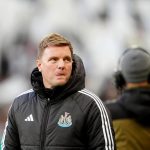In an emotional and triumphant moment that will be etched in Judas Priest history, guitarist Glenn Tipton rejoined his legendary bandmates on stage at The O₂ in London on July 25, 2025, during the group’s massive UK performance as part of their Shield Of Pain European tour. After stepping back from full-time touring in 2018 due to Parkinson’s disease, Tipton surprised fans by appearing for the very final song of the evening, performing “Living After Midnight” amidst thunderous applause and an atmosphere charged with collective elation.
Tipton’s return was brief, but heartfelt—marking a poignant milestone nearly seven years after he initially announced his touring retirement. At 77, Tipton may no longer possess the sustained stamina required for full set performances, but his presence on stage served as a powerful reminder of his enduring connection to what he helped build: the Priest legacy. Lifting his Hamer guitar in that final encore, he tapped into years of history, nostalgia, and emotional resonance that few artists ever get to revisit in such a public way.
The backdrop for this appearance was the Shield Of Pain tour, celebrating the 35th anniversary of the band’s iconic Painkiller album. This London date was particularly significant: a sold‑out show at the 20,000‑capacity O₂ Arena, supported by rock royalty Alice Cooper—a grand stage indeed for one of the evening’s most celebrated moments. Before Tipton’s return, the show featured a meticulously curated setlist: classic Judas Priest anthems like “Painkiller,” “Turbo Lover,” “You’ve Got Another Thing Comin’,” “Breaking the Law,” and newer tracks from their 2024 album Invincible Shield.
Earlier in the tour, Tipton had also appeared on stage in March 2024 in London for the encore of “Metal Gods” and “Living After Midnight,” offering fans glimpses of hope that more appearances might follow. But July 2025 felt especially decisive—possibly one of the last times he’ll appear live with the band. With his diagnosis progressing over the years, these few guest spots have become all the more meaningful, each one a fragile celebration of a life-long musician defying a harsh diagnosis.
In interviews around this time, Rob Halford and guitarist Richie Faulkner paid tribute to Tipton’s continuing role—not only as a landmark performer but as a songwriter. Tipton contributed key riffs and compositions to Invincible Shield, albeit within the limits imposed by his health. As Faulkner noted, many of Tipton’s ideas would be translated through collaboration when he wasn’t physically able to perform—a testament to the respect and affection shared between bandmates.
The London moment felt like a passing of a torch, but also a gentle greeting: Tipton showed up to say, “I’m still here, still part of this.” Fans responded with reverence and love, knowing how rare and precious such appearances have become. Video footage circulating among fan communities reveals his quiet dignity—suited, steady, but powerful in presence alone.
Glenn Tipton’s cameo that night was more than a concert addendum—it was an emotional bridge between Priest’s golden history and its present. For many fans, it brought closure, admiration, and gratitude. For the band, it reaffirmed that Tipton remains an indelible part of their identity. And for Tipton himself, it was another night where music overcame limitations, and memory transcended illness.
As Judas Priest continues their touring ambitions and fans cherish each live show, those brief but incandescent moments with Glenn Tipton will remain among the most treasured in the band’s storied journey.







